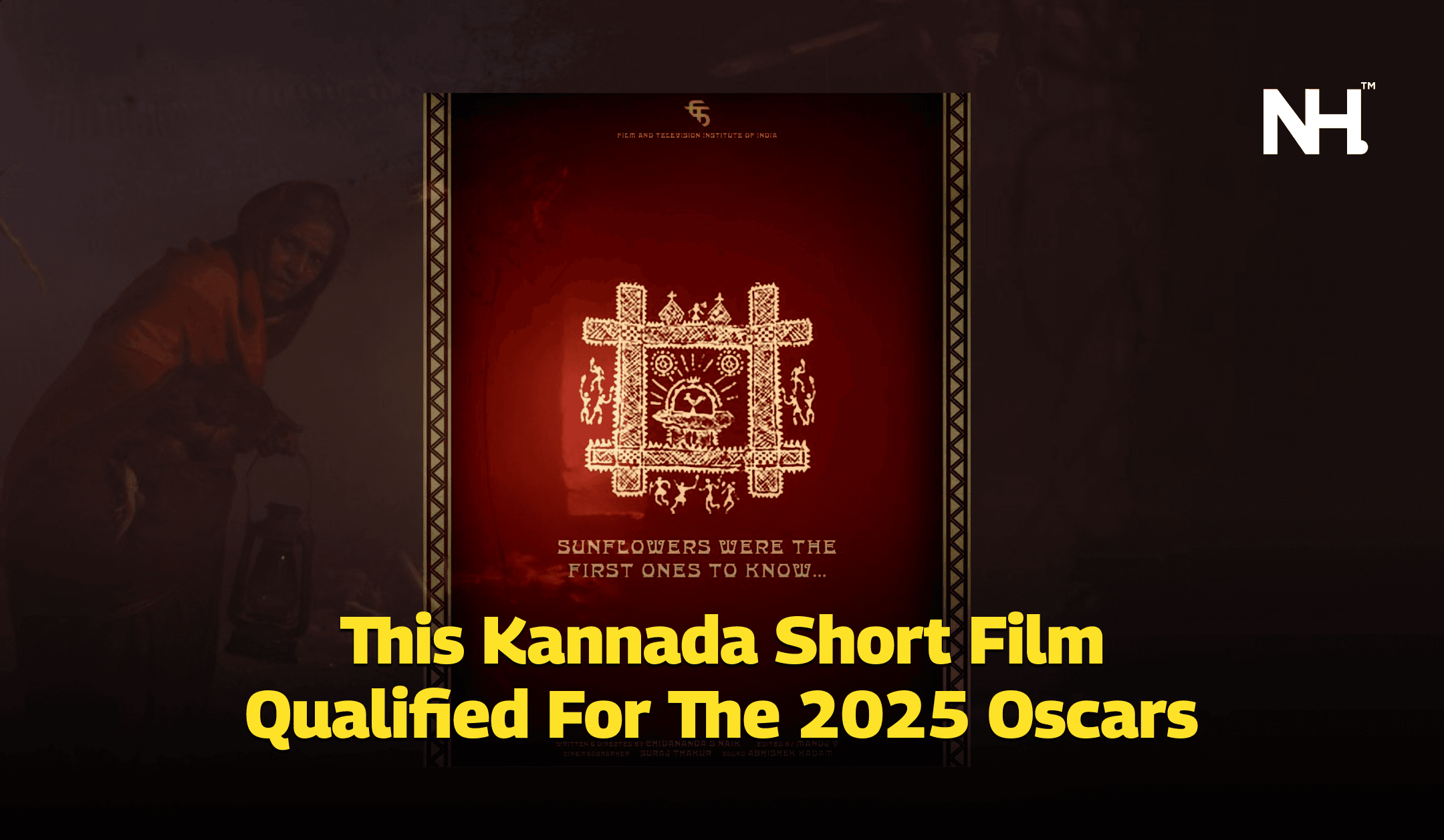The Kannada short film Sunflowers Were the First Ones to Know has qualified for the Oscars 2025 in the Live Action Short Film category. Directed by Chidananda S. Naik, a student of the Film and Television Institute of India (FTII), the film’s journey from a folk-inspired tale to an international stage highlights a proud moment for Kannada cinema and Indian folklore on the world map. Earlier this year, the film won the first prize at the La Cinef section of the prestigious Cannes Film Festival, a rare and highly coveted honour that has catapulted the film to the global arena.
Set in a small, rustic village in Karnataka, the film is a vivid adaptation of a popular Kannada folktale. It centres around an elderly woman whose act of stealing a village rooster leads to a cataclysmic event — the sun refuses to rise, plunging the village into eternal darkness. The community then embarks on a desperate quest to retrieve the rooster, attempting to appease a prophecy that may restore sunlight. This mystical story, rooted in Karnataka’s Banjara folklore, provides a lens into cultural beliefs while exploring timeless themes of fate, mystery, and the natural world’s interconnections.
For director Chidananda S. Naik, who hails from Shivamogga in Karnataka, the tale has a deep personal resonance. Coming from a background in medicine, Naik’s journey to filmmaking was anything but straightforward. Initially captivated by cinema after watching Akira Kurosawa’s Dreams as a young boy, he was further inspired by the resurgence of Kannada cinema in the early 2010s with films like Lucia by Pawan Kumar and Rangitaranga. While Naik pursued medicine professionally, his work brought him face-to-face with human experiences that would ultimately spark his own creative expression. “In medicine, I witnessed raw, intimate moments,” he shared. “These encounters made me reflect deeply on life, stirring a creative urge I couldn’t ignore.”
Naik’s shift to filmmaking was gradual, but he soon immersed himself in the art form, honing his skills in storytelling, cinematography, and editing through short films. His other works, including Whispers & Echoes (2021) and Longing (2022), showcase his unique voice, blending a deep understanding of human experiences with a visual storytelling style. However, with Sunflowers Were the First Ones to Know, Naik found himself returning to his roots — to a folktale that he says has been with him since childhood.
The film’s distinctiveness lies not just in its narrative but in its execution. Shot entirely at night, the film’s haunting visuals amplify the story’s mystery and suspense. Naik and his small team faced significant challenges during production. Filming in remote locations with minimal public transport, they had to carry equipment through rugged terrain, working long hours with limited resources. “We only had four nights to shoot,” Naik revealed. “The geographical challenges made it exhausting, but the team’s passion kept us going.”
At the Cannes Film Festival, the La Cinef jury praised Sunflowers Were the First Ones to Know for its “humor, sharp direction, and storytelling that shines from the depth of night.” This praise propelled the film into the global limelight and opened doors to prestigious platforms like the Oscars, where it will compete in March 2025.
FTII shared the Oscar qualification announcement on social media, celebrating the team behind the film: Chidananda Naik (Director), Suraj Thakur (Cinematography), Manoj V (Editing), and Abhishek Kadam (Sound). This achievement highlights the rising talent from Indian film institutions and underscores FTII’s role in nurturing innovative filmmakers.
As Sunflowers Were the First Ones to Know heads toward the Oscars, Naik is hopeful that his work will inspire other filmmakers from Karnataka and beyond. “My dream has always been to bring Indian folklore to the global stage. There’s a treasure trove of stories in our culture waiting to be told,” he said.
With this Oscar nomination, Naik joins a league of Indian filmmakers pushing regional stories to international audiences. Inspired by legends like Bong Joon-ho and Quentin Tarantino, he envisions Kannada cinema reaching new heights on the global stage. For Naik, this is more than just a personal achievement — it’s a moment of celebration for Kannada cinema and Indian folklore as a whole, as it steps into the spotlight, poised to captivate audiences worldwide.





















































































